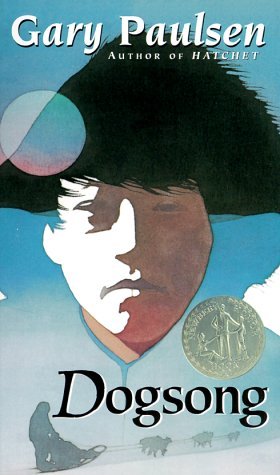
Brian's Winter
Book Description
Survival is not just a fight against nature; it’s a battle against your deepest fears. As winter descends on the Canadian wilderness, Brian faces an unforgiving landscape that tests his courage and wits beyond imagination. Stranded alone, he must adapt or perish, using every ounce of resourcefulness he can muster. Each day brings new dangers: battling bitter cold, searching for food, and outsmarting lurking predators. Trust and friendship flicker like a fragile flame amid the vast snow-covered silence. Can Brian conquer the relentless wilderness before it conquers him? What will he sacrifice to survive the winter?
Quick Book Summary
"Brian's Winter" by Gary Paulsen reimagines the events after "Hatchet," exploring what might have happened if Brian Robeson had not been rescued and was forced to survive the brutal Canadian winter on his own. As the cold season sets in, Brian must adapt to harsher conditions, learning to hunt, build better shelter, and outwit both the freezing elements and dangerous predators like wolves and bears. The novel emphasizes Brian's ingenuity and growing connection to nature as he faces continuous physical and emotional challenges. Through trial, error, and courage, Brian discovers new skills and resilience, making survival not just about staying alive, but about thriving against all odds. The story is a gripping tale of human endurance, self-discovery, and respect for the wild.
Summary of Key Ideas
Table of Contents
Adapting to Extreme Environments
Brian, having already endured a plane crash and an initial summer of survival, finds himself facing a new and formidable enemy: the advancing Canadian winter. With little preparation and limited supplies, he quickly realizes that his previous tactics won’t be enough to get him through freezing nights, snowstorms, and scarcity of food. Forced to adapt, Brian’s journey becomes one of both physical and mental endurance, highlighting the importance of resourcefulness in extreme environments.
Resourcefulness and Innovation
As temperatures plummet, Brian innovates out of necessity. He crafts snowshoes from birch, a tougher shelter from logs and animal hides, and learns to hunt larger game such as deer and rabbits using a self-made bow. His ability to observe patterns in animal behavior leads to improved traps and better strategies for securing food. Each success boosts his confidence, even as setbacks test his resolve.
Overcoming Isolation and Fear
Isolation intensifies Brian’s battle against not just the wilderness, but the loneliness and fear that threaten to overwhelm him. He contends with self-doubt and terror, especially during predator encounters, yet he also discovers unexpected comfort in small victories and the routine of daily survival. The silence of the snow-covered forests amplifies his inner voice, pushing him to confront and overcome his fears.
Human-Animal Connections
Brian’s relationship with the natural world evolves profoundly over the winter. Encounters with wolves, moose, and a curious bear teach him respect for the creatures that share his environment. In a pivotal moment, Brian aids an injured wolf cub, strengthening his understanding that survival is interconnected with the rhythms and inhabitants of the land. Animals transition from threats to teachers, and sometimes, sources of companionship.
Growth Through Survival Challenges
By the end of winter, Brian has been transformed. His adaptability, forged through hardship, equips him with self-reliance, ingenuity, and inner strength. Survival becomes a journey not just for physical endurance but for self-discovery. Through relentless challenge and quiet reflection, Brian ultimately develops a deep respect for nature and a new confidence in his own skills, ready to face whatever may come next.
Download This Summary
Get a free PDF of this summary instantly — no email required.





